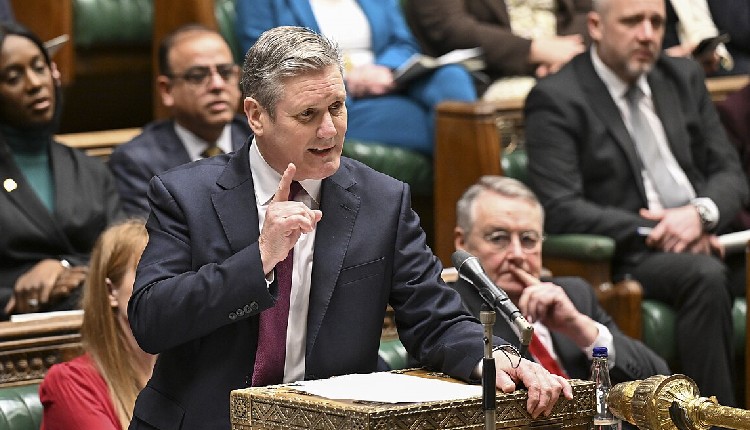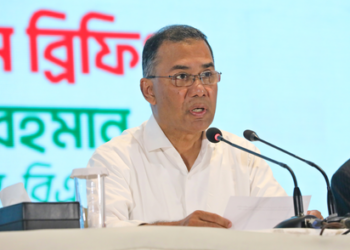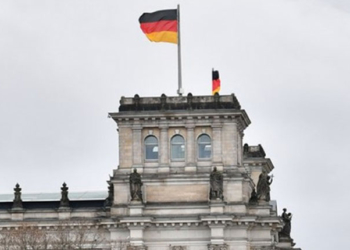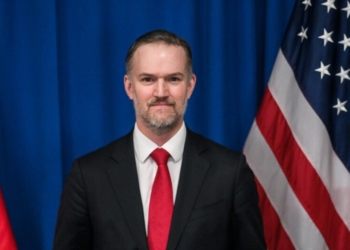London: Keir Starmer, who pulled the Labour Party back from the brink of radicalism and led it to victory ending the party’s 14 years in the political wilderness, is now set to become Britain’s 58th prime minister.
“I’ve changed the Labour Party. We are back in service of working people,” he said of his mission as the leader of the party and the opposition in the House of Commons.
Uniquely qualified for the task, he has been both a human rights lawyer and the nation’s top prosecutor.
“We stand here on the eve of the election as a changed Labour Party, a Labour Party that has pushed protest to one side and returned our party to the service of working people and proudly says country first, party second,” he said on the eve of the election.
After his election from a constituency in London, he said, “The change begins right here because this is your democracy, your community and your future. You have voted and now it is time for us to deliver.”
Unlike many leaders, especially of his Labour Party, who have outsize flamboyant personalities Starmer, 61, has a low profile.
In marked contrast to defeated Prime Minister Rishi Sunak, he comes from a modest family: His father worked at a factory as a toolmaker and his mother a nurse and were Labour Party supporters. In his victory speech here on Friday, he said they provided a “sense of security with comfort from believing that Britain would always be better for their children”.
“I hope the working class families like mine could build their lives around the hope,” he said.
That hope “may not burn brightly in Britain at the moment, but we have earned the mandate to relight the fire”, he said. “That is the purpose of this party”, he said.
His mother suffered from severe chronic disease, a form of arthritis-linked ailment, and he wrote on his website, “I spent my childhood seeing her go into hospital, where my father would always be at her side.”
His politics showed an improbable swing from the left to a moderate line as the Labour Party leader.
He started with the Young Socialists of the Labour Party when he was 16 and moved on to editing ‘Social Alternatives’, a magazine linked to the Trotskyist International Revolutionary Marxist Tendency group.
He got his law degree from Leeds University, only going to Oxford for an advanced degree.
After becoming a barrister, he worked as a legal officer for the National Council for Civil Liberties.
An anti-death penalty activist, he defended people sentenced to the death penalty in several Caribbean countries.
He moved from his private law practice specialising in human rights to working for law enforcement, joining the Northern Ireland Policing Board as a human rights adviser.
Starmer’s next step up was as the director of public prosecutions, the third highest law position in the country.
“It was quite the shift to go from running small teams to running the Crown Prosecution Service and leading its thousands of employees,” he said taking over the national prosecutorial agency.
One of the major prosecutions he launched was against three Labour members of Parliament and a Conservative member of the House of Lords who were all found guilty in the scandal of parliamentarians presenting expense reports.
He was knighted in 2014 for his services in the legal field.
From the legal field, he jumped to politics in 2014 and was elected to parliament the next year.
He opposed the Labour leader of the opposition Jeremy Corbyn and ran on a leftist platform for that position in 2020 and won with the support of former Prime Minister Gordon Brown.
But as the leader of the opposition, he moderated the party’s leftward lunge.
He put a stronger emphasis on strengthening the economy and getting tougher on crime.
He also dropped his policies on nationalising water and energy and ending college tuition in the centre-wards shift.
Labour will be returning to power after its defeat in 2010 under Gordon Brown ending the party’s 13-year streak in power that had begun under Tony Blair in 2007.
Now, Starmer has the momentous task of steering the country through the economic and administrative morass.
But a difficult task looms ahead in dealing with illegal immigration, an issue of major concern which contributed to the Conservative poor performance because of the surprising showing by the upstart Reform Party, a reincarnation of the Brexit Party now with an anti-immigration platform.
The popular sentiment against illegal immigration is at odds with many in the Labour Party.
Another contentious issue he faces is Palestine on which a sizeable part of his party is anti-Israel.
(IANS)
















